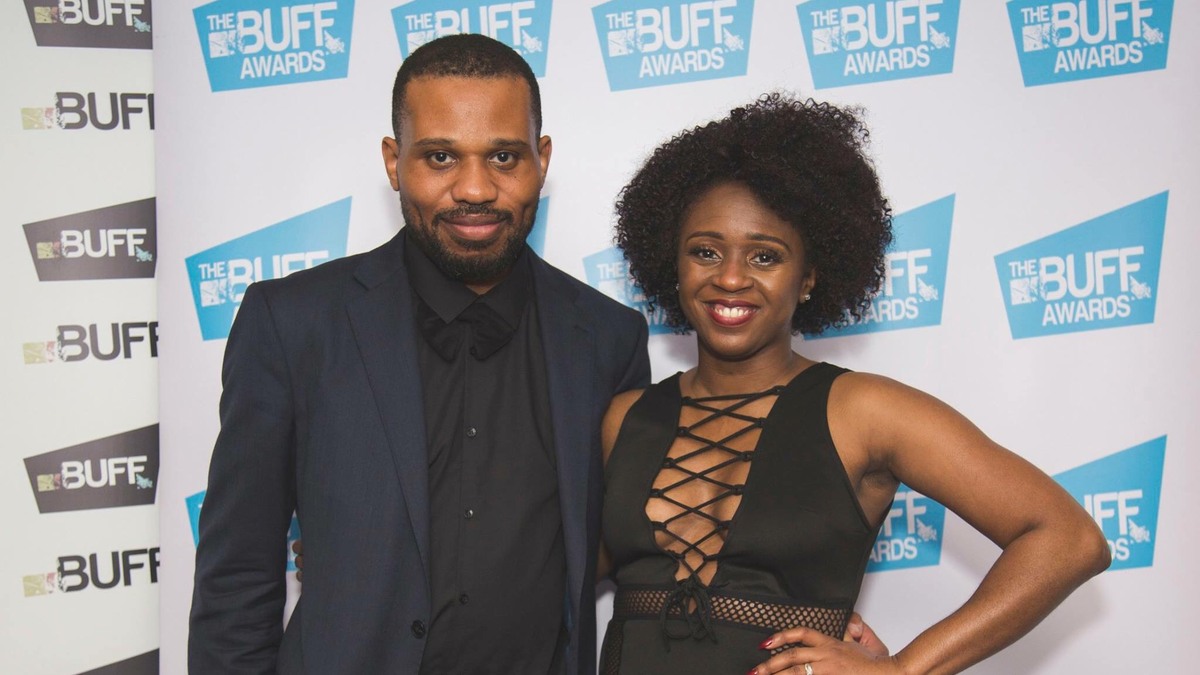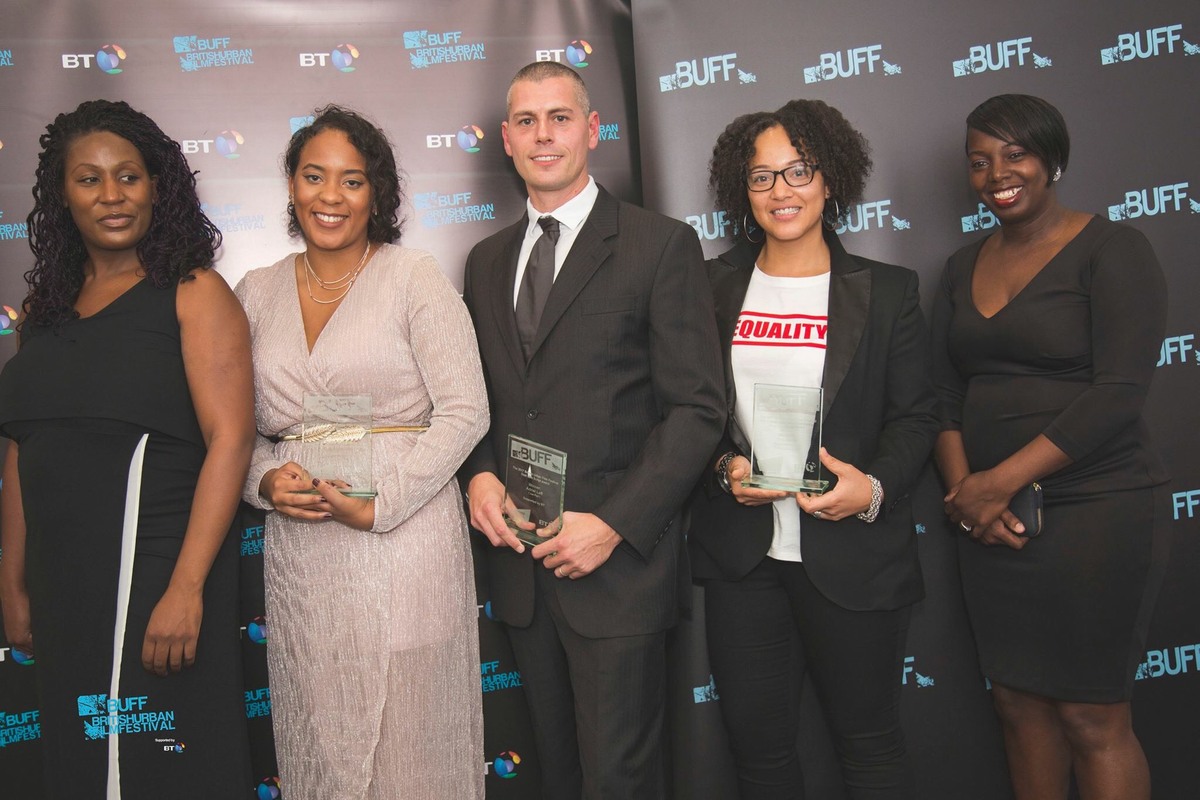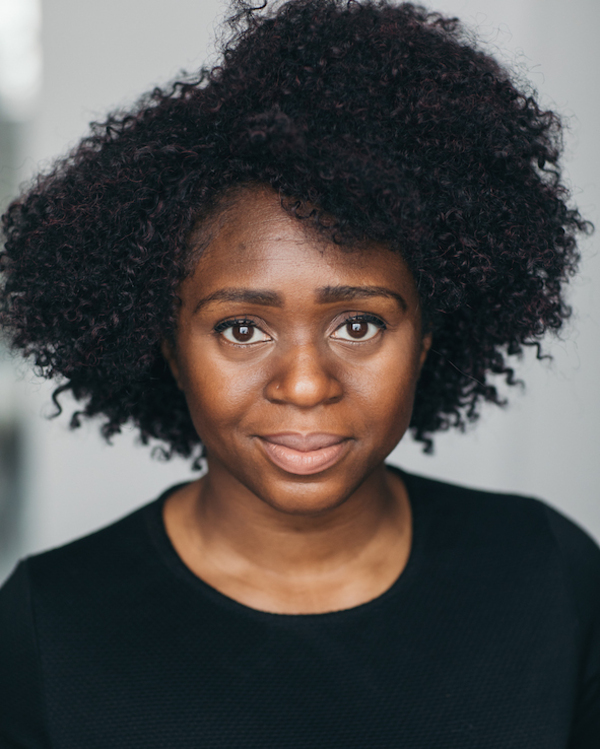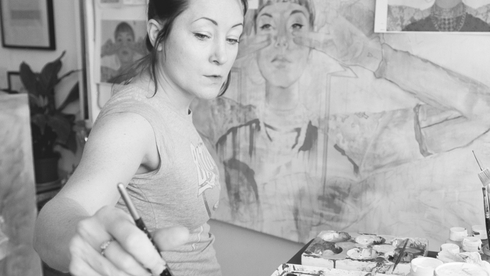Awesome Women Clare Anyiam-Osigwe

TTIN caught up with Clare Anyiam-Osigwe, marketing director and chief finance officer for BUFF, The British Urban Film Festival.
Now in its 13th year, BUFF has been cited by Metro as, “Officially, the leading film festival for diversity in the world.” With a racially diverse board of patrons and judges, reflected through a balanced representation of ethnicity and gender, the festival ensures it offers opportunities to those who have previously been underrepresented within the film industry. “BUFF is the only festival in the UK to develop and establish urban filmmakers. Filmmakers from low-income working-class backgrounds, black and minority filmmakers, and female filmmakers, and has done so consistently since launch in 2005. This is what makes BUFF's DNA so special, unique and authentic,” Clare tells me.
BUFF is at the helm of a handful of organisations instigating (and demanding) the transformation of outdated, exclusive practices and the hierarchical, cronyistic structures of the British film industry. As part of BUFF’s work in changing the landscape of British cinema, its aim is also to deconstruct stereotypes associated with urban and minority films, “People used to associate urban with low quality. BUFF has worked extremely hard to make sure the quality of films exhibited are world class standard - this is reflective through the number of films that BUFF's production company AAA Film and TV have secured for TV broadcast (on London Live, CH4, BBC iPlayer and On-demand platforms such as Amazon and Netflix). It has bridged the gap between Hackney and Hollywood, allowing new voices to have the same privilege and exposure as state-funded and middle/upper-class filmmakers.“
“People used to associate urban with low quality. BUFF has worked extremely hard to make sure the quality of films exhibited are world class standard - this is reflective through the number of films that BUFF's production company AAA Film and TV have secured for TV broadcast (on London Live, CH4, BBC iPlayer and On-demand platforms such as Amazon and Netflix). It has bridged the gap between Hackney and Hollywood, allowing new voices to have the same privilege and exposure as state-funded and middle/upper-class filmmakers.“
We all remember the Oscars controversy in 2015 when every one of the 20 contenders in the main awards categories was white. It seems that -- like the Harvey Weinstein scandal will hopefully be for sexual harassment within the film (and every other) industry at the moment -- it was a wake-up call for those at the top that things needed to change. This was reflected by research commissioned this year by the BFI and backed by film producers Barbara Broccoli (the Bond franchise) and Lucasfilms’ Kathleen Kennedy. The research revealed a “pandemic lack of inclusion” within the British Film industry: Women make-up 40% of the workforce and are paid on average £3,000 less than male counterparts. Only 12% of the workforce is from less advantaged socio-economic backgrounds. 5% of screen workers consider themselves disabled and a mere 3% of the film production workforce is from a minority ethnic background.

These pitiful and inexcusable statistics are too shocking to ignore: this year the BFI pledged £20m of National Lottery money towards improving the situation by “demystifying getting into the film industry as well as bursaries and schemes to encourage industry practitioners to share their knowledge and expertise.” Progress has, however, up until this year, been slow and sometimes even tokenistic, as Clare points out, “Diversity is life-affirming, it is not as a one-year bandwagon for broadcasters to pat each other on the back and then go back to 10 more years of ignoring female, BAME, Disabled talent. It should be a way of life for us to have enriched creative culture.”
“Diversity is life-affirming, it is not as a one-year bandwagon for broadcasters to pat each other on the back and then go back to 10 more years of ignoring female, BAME, Disabled talent. It should be a way of life for us to have enriched creative culture.”
Changing the situation within Britain’s film industry may well continue to be an uphill battle for a long time yet, regardless of good intentions. This is partly due to a simple dearth of financing within the body of the film industry itself. Terry Illot from the Met Film School argues in The Guardian that, “With the decline of the corporations has come a decline of professionalism. The film industry has started to pick up the bad habits that have infected other sectors of our economy, with a significant increase in unpaid interns and people working on a deferred fee basis (working for free).” Something Clare mirrors as she says, “I think the BAME community in London are still heavily underrepresented when it comes to big budget films. Most of the filmmakers that I know make films for less than £1m, some - less than £10k! That's considered micro-budget. Without budget, it's hard to retain good people, tell groundbreaking stories and to get them distributed. It becomes a vicious cycle. Or there is the feeling of being pigeon-holed into telling the same types of stories, which keeps the industry stuck in the ‘90s. I believe the funding bodies need to have a more diverse board who sign off on the funding for BAME storytellers to really have a chance. If not, we will keep losing talent to Hollywood and the British film industry may become obsolete.”
Women make-up 40% of the workforce and are paid on average £3,000 less than male counterparts. Only 12% of the workforce is from less advantaged socio-economic backgrounds. 5% of screen workers consider themselves disabled and a mere 3% of the film production workforce is from a minority ethnic background.
A notoriously diverse sector within the entertainment industry that is thriving in the UK is the Grime scene, a sector where “men and women support each other's work” and an example Clare feels the film industry could follow, “[Grime’s] unapologetically British and I live for that. It's something that hasn't really happened before in Black British entertainment and it is teaching the rest of the creative arts how to collaborate and support each other. It's something that Black Americans do really well, but Black Brits have struggled with.”
Clare’s experience in the film industry spans both on and off screen. Having trained at LAMDA and completed a joint BA in acting and directing at Brunel she took her first steps in front of the camera only to find, “I was cast as nurse three times in one year for TV, with no speaking part and I looked at my bleak future as a black British actress and thought 'sod this' I'm never going to get anywhere in this industry. At 26, I decided to leave the industry and set up a beauty brand.” This beauty brand, Premae, went on to ensure she was awarded in the Queen’s Honours list earlier this year.

Fortunately, after her notable successes in entrepreneurship, Clare did return to the film industry.
Inspired in part by her work with BUFF and the gradual diversification we have witnessed so far, she is now writing her first feature film, “I have been really encouraged to see people who I have crossed paths with, rising up and doing their thing, people such as Michaela Coel [Chewing Gum] and can feel a gradual shift in the industry. I can see prominent faces like Ava Duvernay and Ama Asante being given funding to tell their stories and this has really encouraged me to come from behind the scenes of business and marketing and pick up where I left off -- writing scripts, acting and directing -- as I think the industry is now more ready to hear from black female talent. I think this is key for all of us. Feminism is the birthplace of possibility. Women are the most magical species. We are literally pregnant with possibility, we give birth to life, stories and are natural orators and producers. By dulling our shine, or taking off our crowns, the industry at large is suffering.”




